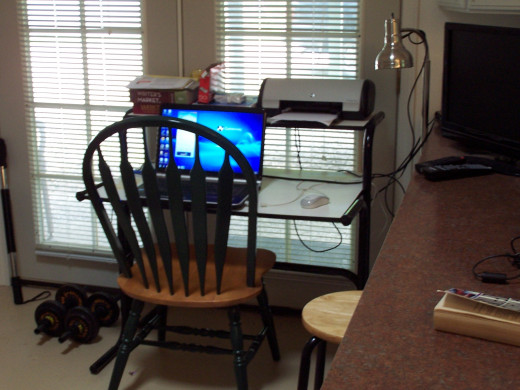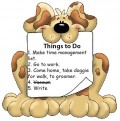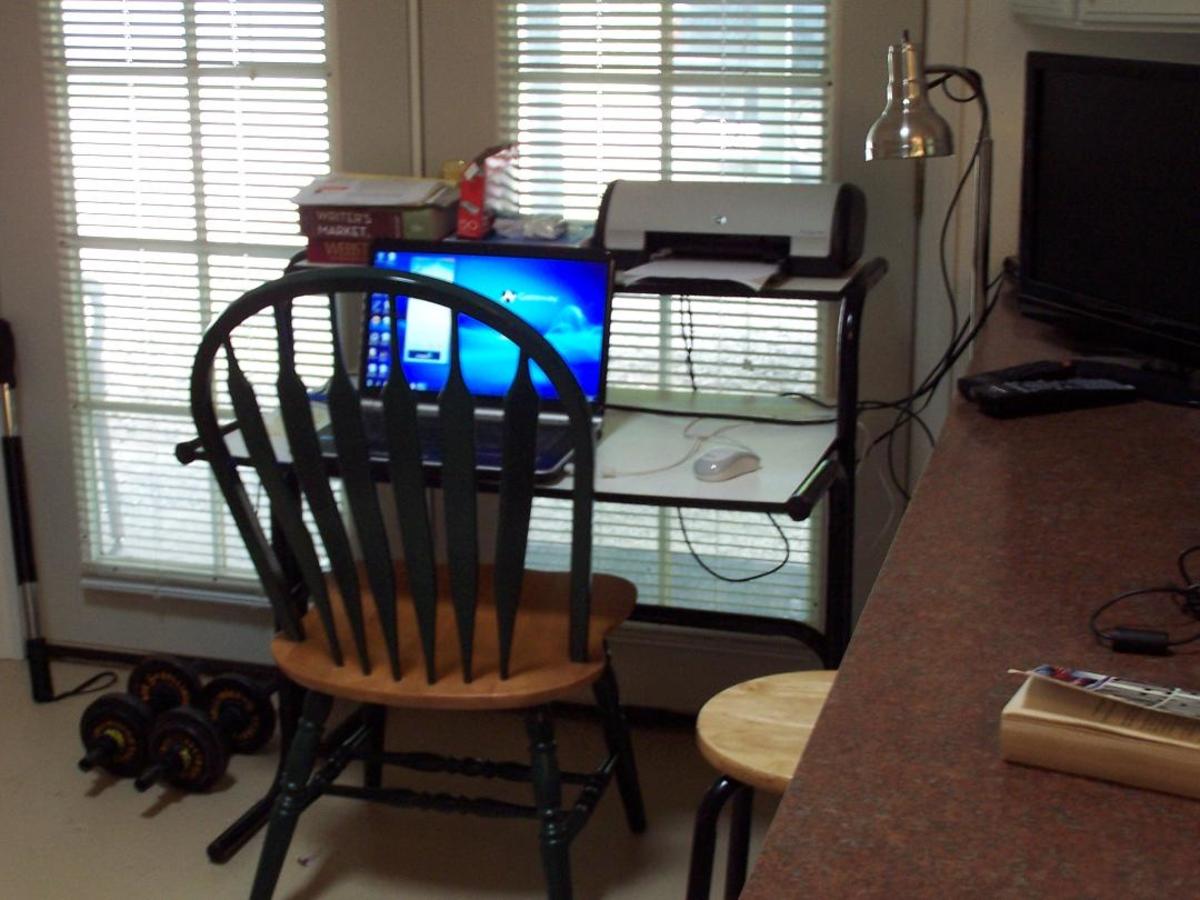The Writer's Mailbag: Installment Thirty-Five
I’m Baaaaaaaaack!
Do you have a vision of that scene from “The Shining” running through your mind right now? Jack Nicholson was freaky in that movie, wasn’t he?
Well, I am, indeed, back, with another installment of the Mailbag. You ask, I answer, and we all go home fat and sassy. I could make small talk and tell you about my week but seriously, does it matter? You’ve got your own life and you don’t need to hear about mine, so let’s just get started. Janet kicks off this week’s mailbag with a question about comments.

Responding to Comments
From Janet: “Bill, how do you find the time to respond to all the comments you receive?”
The answer to this one is simple: I make the time.
How can I write an article on a public site, sit and hope for responses from busy people, and then not take the time to respond in kind? It just seems plain rude to me not to respond to comments. The day I’m too busy to respond is the day I need to stop writing articles for the public.
Taking it a step further, I’ve actually checked on some writers to see if they are commenting on my comments to their articles. If they can’t be bothered to comment then I stop following them because I consider it rude of them. I took the time and they should take the time. End of story!
Making a Living As a Freelancer
From Bob: “What’s the fastest way to earn money as a freelance writer? I’m facing some financial problems and I need to start seeing some money coming in from my writing.”
This is another easy question to answer: there is no fast way to earn money as a freelance writer. Sorry, Bob, but that’s the truth as I know it.
I see this all the time and it is beginning to drive me crazy. Listen, I know times are tough economically. People are scrambling to pay bills, and being a freelance writer seems like a pretty soft gig to make some extra cash. You can do it in your spare time and maybe pay for your utilities, and how cool is that?
Well, if it were true, it would be very cool indeed. This is why content mills are so successful. Many writers out there are desperate and willing to work their butts off for loose change.
Making money as a freelancer is not easy. Toss that misconception out the window immediately.

SELF-EDITING
From Patricia: “I know you have said how important it is to edit a book, but some of us don’t have the money to pay an editor. I mean, the quotes I’ve received are between $500 and $1000. Who has that kind of money? What can I do if I want to self-publish an ebook and I can’t afford to hire an editor?”
Here’s a question we haven’t had before, and I suspect it’s a pretty common problem. Believe me, I understand. I’m not rolling in money either, and this is a real concern as I put the finishing touches on my latest novel, “Shadows Kill.”
The best suggestion I can give you is to turn to close friends you can trust and ask them to do the editing for you. Maybe you can contact another writer you trust and work out a trade with them. You’ll edit their future book if they edit yours….that sort of thing. One thing you absolutely should not do is do the editing yourself. You are too close to that book, and you will miss things that another pair of eyes won’t miss.
If you are not self-publishing and decide you want to submit your book to an agent or publisher, good luck. If the book is not properly edited, the professionals will eat you alive and most likely reject your book after reading the first chapter. They are pretty serious about the editing process. They don’t want to spend the time and money to edit the book for you, and they have thousands of writers to choose from, so why would they waste time on an un-edited book?

Traditional Publishing
From Josh: “I’ve read your views on traditional publishing vs self-publishing. I was wondering why you think it is so important for you to be accepted by a traditional publisher? I’ve known a few writers who do quite well with ebooks.”
Well, I’m going to tell you, Josh, and I want you to realize that what I’m about to say is a purely subjective opinion. I have nothing at all against ebooks, as long as they are written well. I know writers who have done well with them and I’m very happy for them.
Having said that, for me, I think traditional publication if a validation of sorts…It’s a legitimizing of the book if you will. If a professional agent, or publisher, or both, decide that my book is worth publishing, that would mean a great deal to me, much more than the simple process of self-publishing. It would mean that professionals in the field, those who see thousands of books each year, have decided that mine is of high quality. I can’t get that from publishing an ebook.
I understand the lure of ebooks, and I’ve even published a couple myself…but….nothing could compare, for me, to having my work accepted by someone who has solid experience in the field, someone who is going to spend money promoting my book. I just don’t think there is any comparison when viewed that way. It would be the same thrill if I won a major writing competition.
SPREADSHEETS
From Jennifer: “I'm wondering - do you use a spreadsheet to track your pitches or jobs?”
Hello, Jennifer, and thanks for a brand new question I haven’t had yet. Jennifer is asking about submitting query letters and idea pitches to magazines and other publications. She wants to know how important it is to have a good tracking system of those queries, and the answer to her question is VERY IMPORTANT!
If you are a freelance writer, and writing magazine articles is important to you, then you really must do this. It really is the only way to keep track of things. One very important reason for doing this is because magazines are notoriously slow about paying for an article. There are some mags that only pay twice a year. Some pay within three months of publication. How can you possibly know if you are getting paid on time if you don’t have a spreadsheet?
But spreadsheets serve other purposes as well. They help a writer to keep track of deadlines…when an article was accepted, when it is due, and yes, when payment is due. Spreadsheets are also a good way to keep track of queries for a book you have written. You can have columns saying “very receptive”…..”invited more work”….not receptive at all”…..whatever information you need to keep track of with your freelance business, a spreadsheet can help you with.
Join me on my writing blog
- William Holland | Helping Writers to Spread Their Wings and Fly
Tips and discussions about the art of writing
More Next Week
Well that was cool. We had a couple questions never asked before, and I love it when that happens.
But I also love any old question, and I appreciate all of you who took the time this week to ask your questions and keep this series alive.
So I’ll see you all next Monday with another installment. In the meantime, write like a man, or woman, possessed. You never know when you’ll be able to do so again. This is a gift we’ve been given, so treat it as such and write your heart out.
Bill
“Helping writers to spread their wings and fly.”









